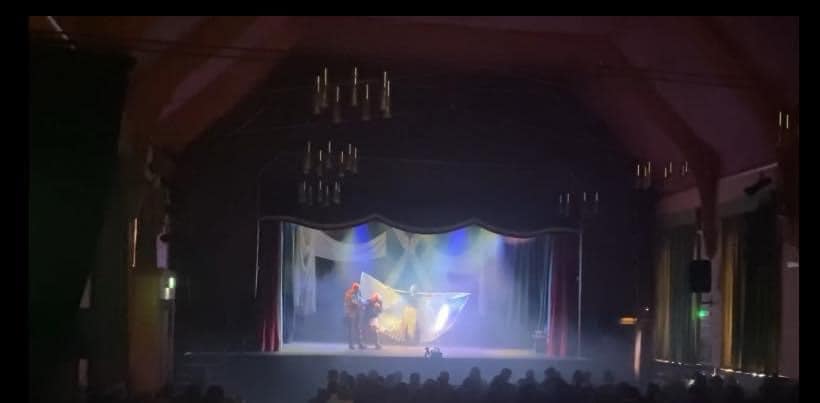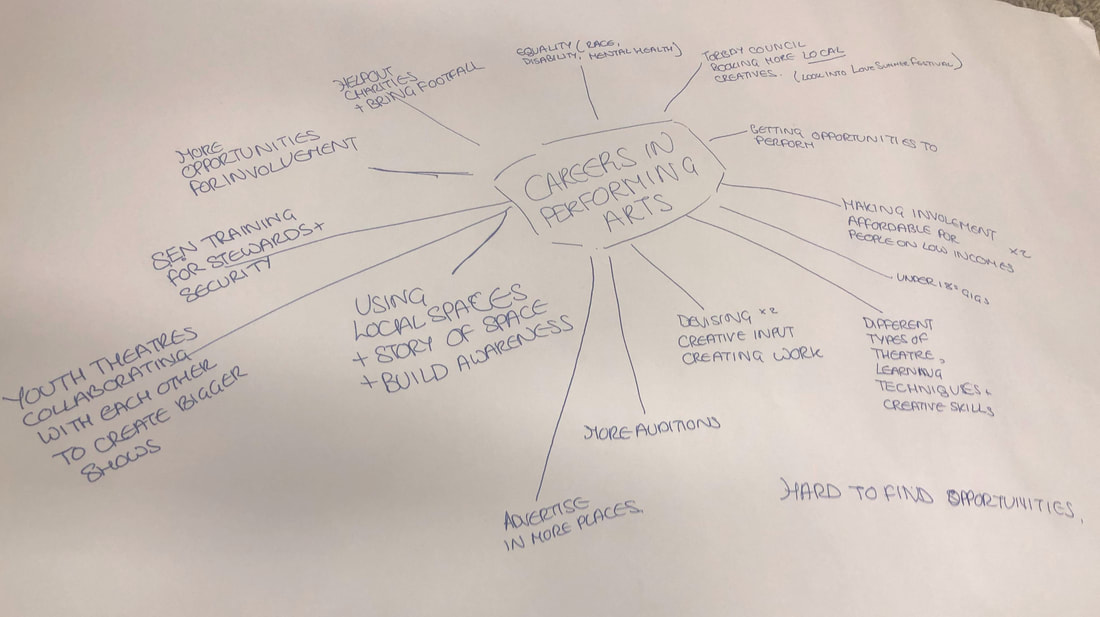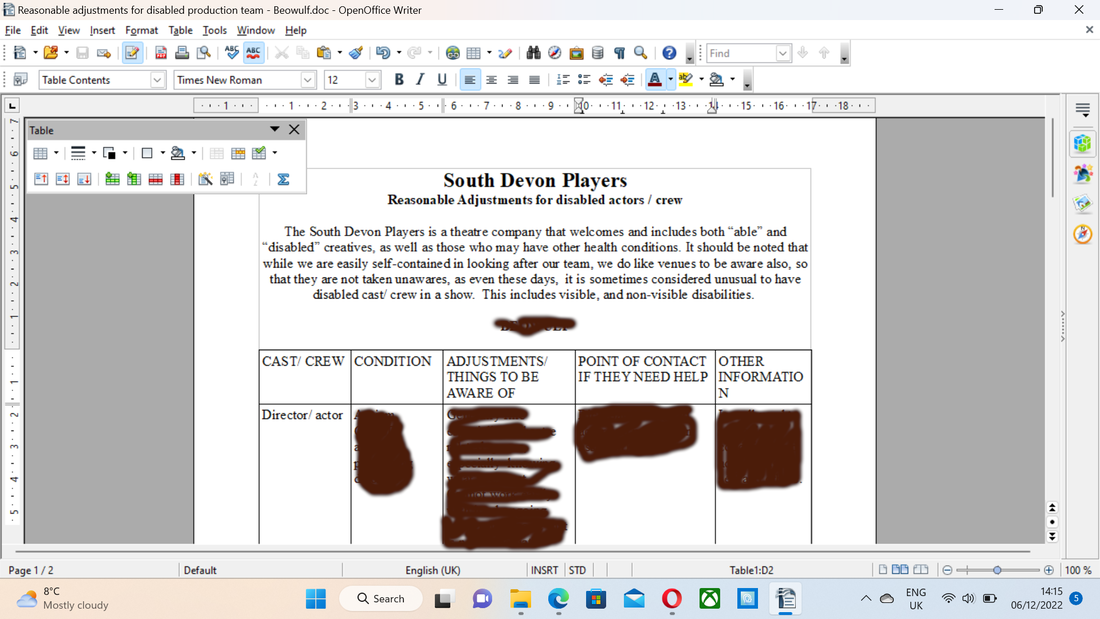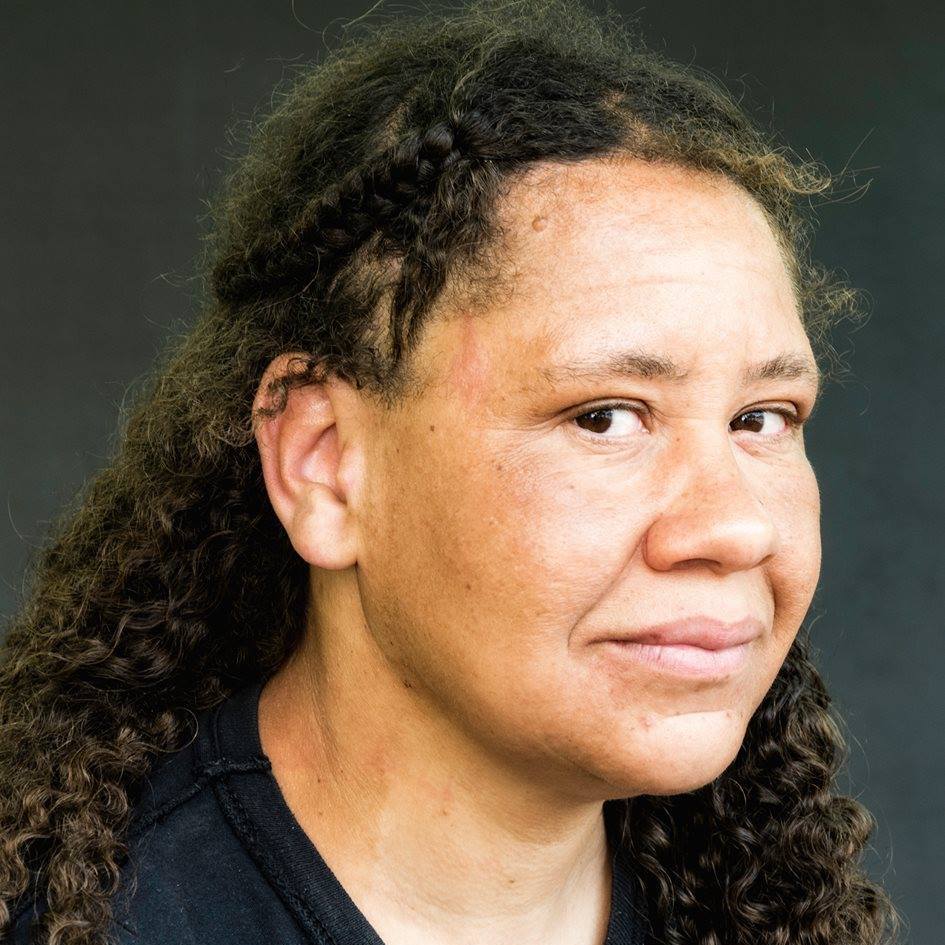This post comes about after a few meetings this winter, which have left me extremely concerned about potential exploitation.
I met fantastic people who have been involved in youth theatre, or who have been studying it at college, and who now want to become involved in professional theatre.
They would meet with me, be very interested in what we are doing, and want to audition or join the stage crew - and then the next question is "how much do you charge actors and stage crew to be in a show".
Now these are people who know already that this is a professional touring and streaming theatre company. What they didnt know, is that you dont pay to work, in theatre - they actually believed that is a part of being in theatre and were very suprised when I said there is absolutely no fee involved.
I am horrified, to put it mildly.
Now, bona-fide amatuer theatre groups do usually charge fees to be involved with them. It is pretty much the same as paying membership to be part of a sports or hobby club. Nobody earns any money from being involved, and amatuer theatre "work" or freelancing. Similarly credits with amatuer theatre cant be accepted towards Equity or Spotlight registration, or as credits for being registered with a bona-fide acting agency.
HOWEVER in the professional world, that is not at all how it works. Whether its an organistaion which doesnt gain any funding, and shows are paid on profitshare, splitting the ticket sales between the cast & crew which is of course then an unguaranteed amount that could be very little or a lot, depending entirely on ticket sales;, or whether it is a production with the lucky resources to be paid "properly" at or above Equity minimum rates rates, no company that is not an "amatuer dramatics" company should be charging people to be involved, and instead should be making every effort within their power to pay actors and crew - not the other way around!
Credits (again from productions paid in whatever form) are also then accepted for Equity and Spotlight and by agents.
With profitshare (which is where we currently are) people ask me how then we fund our shows, with costumes, props, venues, insurances, publicity and the like. The reality is that as the company founder, I spend at least 40 hours a week on a voluntary basis, fundraising (mainly via our ebay shop selling second hand bits, and stalls at local fetes/ markets, which is our primary income for productions and core costs), delivering posters, publicising on social media, and doing as many things as I can to ensure that there are as few as possible (ideally no) deductions from the ticket sales so that the actors and crew can recieve more.
If someone wants to jump in and help with the fundraising etc, I certainly welcome it, but that is in no way a condition of being involved, and you are not expected to pay to be involved.
It really worries me that while some theatre training for people does indeed teach basics like this, so many people seem to want to come into the industry without this awareness.
There are always companies which will pay on peoples desire to find a great casting, buy claiming to charge a fee to guarantee a role or representation to famous casting directors; sadly these are virtually always a scam - they will usually take your money and disappear! I would highlky reccomend reporting any such adverts or requests for "pay to play" to Equity www.equity.org.uk who will take a very dim view of them!
- Laura




 RSS Feed
RSS Feed
